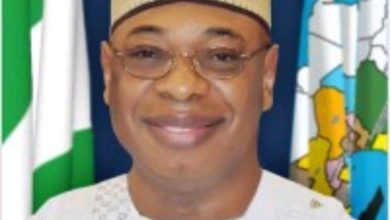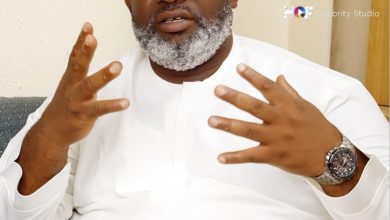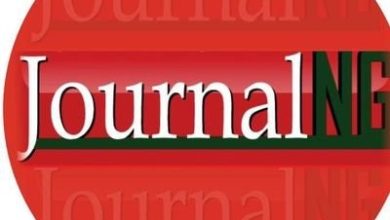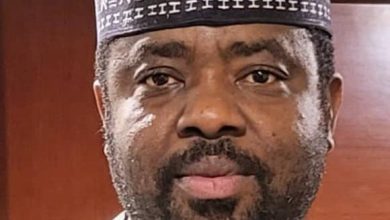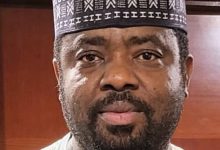Q&A: AfCFTA Isn’t Taking Off Smoothly Because of Tension, Militarisation by African Countries – Nwabunike
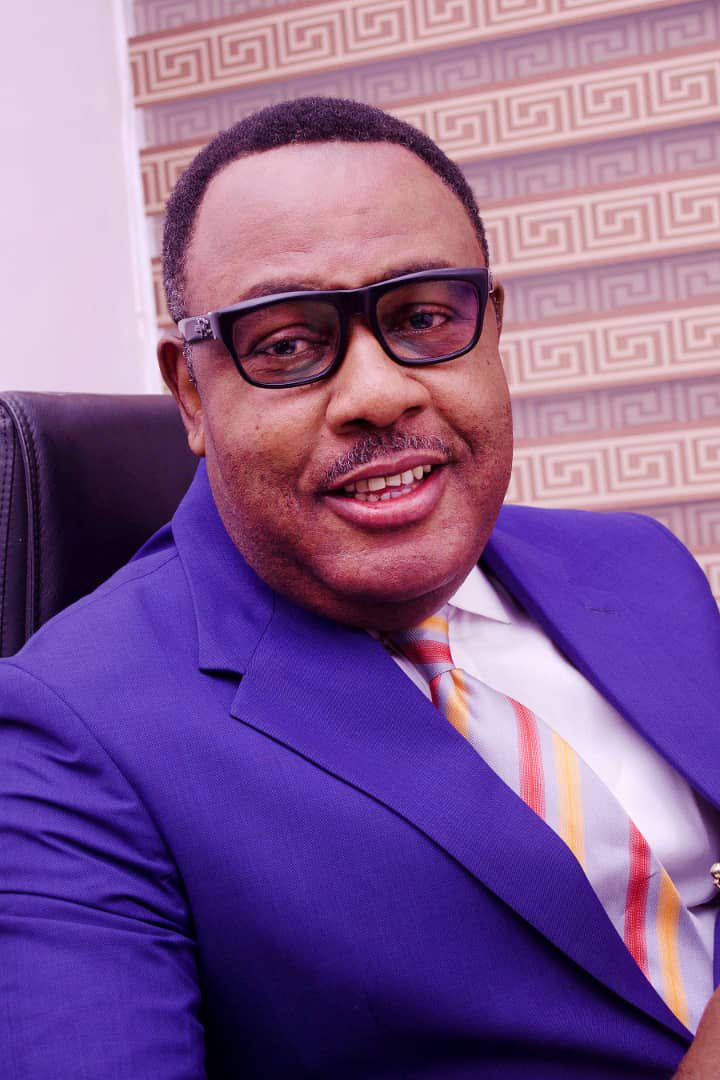
Anthony Nwabunike, Pioneer Chairman of the Council for the Regulation of Freight Forwarding in Nigeria spoke to JournalNG from the United States where he expressed views on trans border trade and other maritime related issues
He blamed the inability of African countries to trade smoothly under AfCFTA regime partly on poor political will like stringent visa access and more focus on military preparedness than thrusting on intra African trade.
This conversation was with Ismail Aniemu
Q:There have been incidences of marine accidents within the inland waterways of the country. How best do you think this can be prevented?
I want to start by saying we have not paid much attention to safety on the inland waterways, which is wrong. It is poorly regulated and commercial boat operation there has become an all comers affair.
Putting it in proper context, there are drivers license and riders license issued for drivers of vehicles and operators of motorcycles in Lagos State. Why can’t we have a situation where those who operate commercial boats are trained and licensed?
I know NIWA is doing something with ferries but the ferries are not the only means of transportation on the inland waterways. In fact the uncovered areas by ferries are larger than the covered areas.
Most of those operating the commercial boats know little or nothing about safety measures. They bank on their personal ability to swim as reasons why they don’t use life jackets or encourage passengers to use
There is also almost zero availability of rescue workers in case of emergencies
It has become necessary for government to have a reliable database that contains names, locations, types of crafts and other particulars of boat operators. Whoever is not certified or licensed to operate in that space should not be allowed to operate there.
Q:How best do you think AfCFTA can be made to work faster for the economic benefits of African countries?
The African Continental Free Trade Area is challenged by bureaucratic, political, economic, ideological and other bottlenecks. I will explain this with examples.
As close as Ghana is to Nigeria being a fellow West African country accessible through the Lagos-Abidjan corridor you will need about N400,000 for a return ticket between Lagos and Accra, which on every trip you are spending less than one hour.
You are also faced with the challenge of multiple currencies which subjects traders to bureaucracies across the borders. This is just within West Africa where the Economic Community of West African States (ECOWAS) passport enjoy visa free access within 15 counties alone.
Outside of ECOWAS, except for Rwanda, Gambia and Benin and maybe a very few others considering the move, fellow African countries have not relaxed visa restrictions to facilitate ease of movements without rigours. As proximate as Nigeria is to Chad and Cameroun, we need visas to access these countries.
For over four years African countries have been talking about AfCFTA, they are yet to use the platform of the African Union (AU)to to make intra African travel easier for businesses and business people.
Another challenge to AfCFTA is political instability. Niger Republic is the largest in West Africa by land mass covering 1,267,000 km² . It is one of the largest countries in Africa and the 22nd biggest in the world.
Since the overthrow of the democratically elected government in Niger, the country has been on the defensive mode. It had military pact with the United States and lately received Russian military trainers.
Instead of African countries to be installing modern servers, mobile and fixed scanners, weighbridges and other trade supporting infrastructure, they are sharpening up their military against themselves. Under such condition of suspicion and armament, trade cannot flourish.
I remember visiting Niamey in Niger, some five years ago as a director of a private company. I saw first hand, the commercial potentials Nigeria could explore with this neighbour country for mutual benefit, especially with rewards to utilising our Kaduna Inland Dry Port
I think the Buhari government saw some of these potentials too which may have informed construction of rail from Nigeria into Maradi , it’s commercial nerve centre. Sadly, none of these are being utilised for our economic advantage
Without sounding like a conspiracy theorist, I want to say Niger, Mali and Burkina Faso have been strengthening their military preparedness against fellow African countries, especially when we look at the infamous initial position by ECOWAS.
When countries that should be discussing trade are engrossed in military preparation, it means there is tension, so the entire AfCFTA market is structurally disrupted.
Discussing it geographically, Niger shares border with seven Nigerian states.It is bordered by Libya to the northeast, Chad to the east, Nigeria to the south, Benin and Burkina Faso to the southwest, Mali to the west, and Algeria to the northwest. In all, Seven countries also share borders with Niger.
With it’s regular military inclined governance, trade with those seven countries will be impacted and Nigeria as a country will not get trade easily across Niger to other countries.
Niger is rich in uranium which is used for electricity but I am not aware of any African country being positioned to buy the mineral from Niger. This is an example that some African countries believe in trading with non African countries than their fellow Africans
Q: There has been change of leadership in various maritime agencies like NIMASA, Nigerian Shippers Council and National Inland Waterways Authority (NIWA) . What do you think should be their areas of priority?
Let me first restate that these agencies have different primary functions and cannot pursue a uniform agenda but it’s possible to get them place national interest ahead of unnecessary projects.
The NIMASA DG be very concerned about the acceptability of Nigeria Certificate of Competency. If in 2024,Nigeria is still issuing a near coastal voyage (NCV) CoC when Ghana and Cote devoir have been issuing unlimited CoC recognised by notable maritime administrations in the world, then we need to roll up our sleeves to work harder.
Between 2008 and last year, 2023 NIMASA sent over 2000 youths abroad for maritime training under the NSDP scheme but we cannot boast of 1000 certified seafarers from among the beneficiaries.
We are talking about huge government resources to the tune of over $300m spent without commensurate value added to the economy and for the betterment of the trained cadets.
It’s like NIMASA and the beneficiaries got so much carried away about going abroad, getting estacodes while forgetting the real reason of sending people abroad. The new DG should stop the waste of scarce resources.
It’s high time government stopped the hanky panky shifts that has held down our cabotage vessel finance funds. They should be categorical about fleet expansion. The reality of Nigeria being a maritime country that doesn’t own ships is not something to be proud of.
For NIWA, I am more concerned with safety issues along our inland waterways. It is imperative to look at the navigable state of our waterways, remove impediments and instill a culture of safety consciousness and practices
Monitoring news in Nigeria, I read about unsafe maritime practices which is worrisome. Despite recent loss of lives due to boat mishap where passengers did not wear life jackets, the Nigerian Navy recently rescued 250 persons in a capsized local ferry at night in Bayelsa. None of the passengers or crew members had a life jacket on. There is the need for NIWA to do more including amending it’s enabling laws for prosecutorial powers in the face of violations.
Not until you arrest operators of the boat service and cause them to face prosecution, they won’t act rightly. If perpetrators see that government is serious with enforcement, they will sit up. Just like in the case of naira abuse, everyone has sat up. We need such examples with traveling on water without life jacket, boat overloading and night travels
Q: How relevant is a stand-alone CRFFN in the face of planned Oronsaye report implementation?
First the CRFFN Act is overdue for amendment and this should start by way of public hearing for all relevant stake holders to make input. I was the pioneer Chairman of that council and I did so much to lay the foundation for its take off.
There are gaps to be be filled. The new Nigeria Customs Service Act 2023 did not recognise the CRFFN as a fellow government agency and made no reference to inter organisational interface even when both agencies regulate same and similar professionals in most cases. It is being viewed like an association, not a fellow government agency
Now that the council has been removed from budgetary allocation,it has been unable to pay workers salaries and other financial obligations for over four months. In this circumstance, the council won’t be able to function properly
It is important we move towards capturing the mode and procedures of collection of POF through various terminals in an amended law. From the grapevine, the CRFFN is presently owing close to N200m and counting
I already fear it doesn’t go extinct like National Clearing and Forwarding Agency (NACFA) and the privatised Nigerdock in the maritime industry
Talking about the Oronsanye report and how it should concern CRFFN, my take is that the council must be alive first before we the government decides if it will merge it or cause it to function optimally.
Don’t forget that there are identified gaps in the council’s function of promoting professionalism in freight forwarding. Not much has been done. The associations are not feeling it’s impact as a regulator







